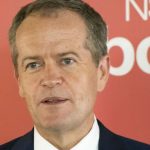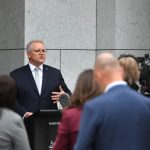We need a pope who can handle the truth
As the papal conclave prepares to elect a new pontiff for the Catholic Church, Australian Catholic Bishops Conference General Secretary, Fr. Brian Lucas, shares his thoughts on what it takes to be a good leader and a great pontificate.
Much of the pre-conclave discussion by media commentators, assessing the comments allegedly made by various cardinals and other commentators, focuses on the qualities of the prospective pontiff and expectations about his agenda, especially a reform agenda for the Vatican bureaucracy.
Everyone has a point of view and the more a particular perspective is recycled and repeated by various media outlets the more ‘authority’ it has. There is an almost insatiable thirst to find something to satisfy media demands. Cardinal Pell’s comment about a governance agenda for the new pontificate was quickly, and unfairly, exaggerated into a purported criticism of Benedict’s qualities as a governor.
There seems to be an assumption that the next pope needs to be a first rate pastor, theologian, teacher, media personality, administrator and diplomat while being humble and holy.
No single human can be expected to be good at everything. This is why, learning a lesson from the world of corporate governance, the effective chief executive is the one who has the skills to work with collaborators who are better at most things than he or she is.
The next pope does not have to be the best theologian. He needs to be able to identify and collaborate with the best theologians, communicators, diplomats, and administrators. He needs to have the strength of character and confidence to surround himself with those who will not merely defer to his status, but tell him the truth.
Awareness of the need to tell the truth, and less inclination to say what might please a superior, is at the heart of good bureaucracy. My suspicion is that some of the clerical culture that can pervade church life stumbles when confronted with this choice.
Without the checks and balances of civil bureaucratic processes, where one can appeal against a failed application for promotion and where there are set criteria and defined position descriptions, church bureaucrats feel they are at the mercy of a superior’s whim. Promises of obedience inhibit giving frank and fearless advice.
Some have suggested that recent pontificates have not been good in identifying the right collaborators. From this distance it is impossible to assess such a claim. But there is a well-established axiom that justice must not only be done, but must be seen to be done, which means that process can be as important as the outcome.
In a video made in connection with the launch of the new missal, Archbishop Mark Coleridge frankly admitted that the process was not perfect and then went on to the state the obvious – that there is no perfect process.
Catholics waiting in expectation for a ‘reform of the curia’ would do well to keep their expectations realistic. Bureaucrats are human and prone to the usual human temptations to ambition, hubris and self-interest.
Before we run to make broad generalisations about the state of the roman curia we need to reflect on the personal perspective we bring to that exercise. A decision will not be seen in the same way by those on the ‘left’ or the ‘right’ (to use somewhat unhelpful but illustrative categories) of the Catholic theological spectrum.
The Roman curia, like local diocesan and Catholic education bureaucracies, is not an end in itself, but serves the universal ministry of the Pope. The Pope’s closest collaborators need to work collegially. They need to meet and talk and work towards breaking down silos. They have to trust each other.
It is said that ‘knowledge is power’ and this can cause different curial officials to keep things to themselves and vie for ‘access’ to the papal apartment. This is the paradox of hierarchical governance. Those below want to use the one above to get their way and they can manipulate that by managing the flow of information. Sharing only good news with ‘the boss’ may make for a comfortable career, but only until the inevitable truth emerges.
While I know nothing about ‘Vatileaks’, and cannot wholeheartedly trust media reports, my intuition causes me to wonder if such information outlets were prompted by a frustration that communication in the bureaucracy – whether it be up, down and sideways – was being manipulated at the expense of acknowledging the true state of affairs. My prayer is that the next pope can give his collaborators permission to be honest with him and with each other.
This blog was first published on Eureka Street and appears on Open Forum with the kind permission of the author.
Fr Brian Lucas is the General Secretary of the Australian Catholic Bishops Conference. He is a priest of the Archdiocese of Sydney where he served as spokesperson during the late 80s to the late 1990s. He has qualifications in law, theology and media.











